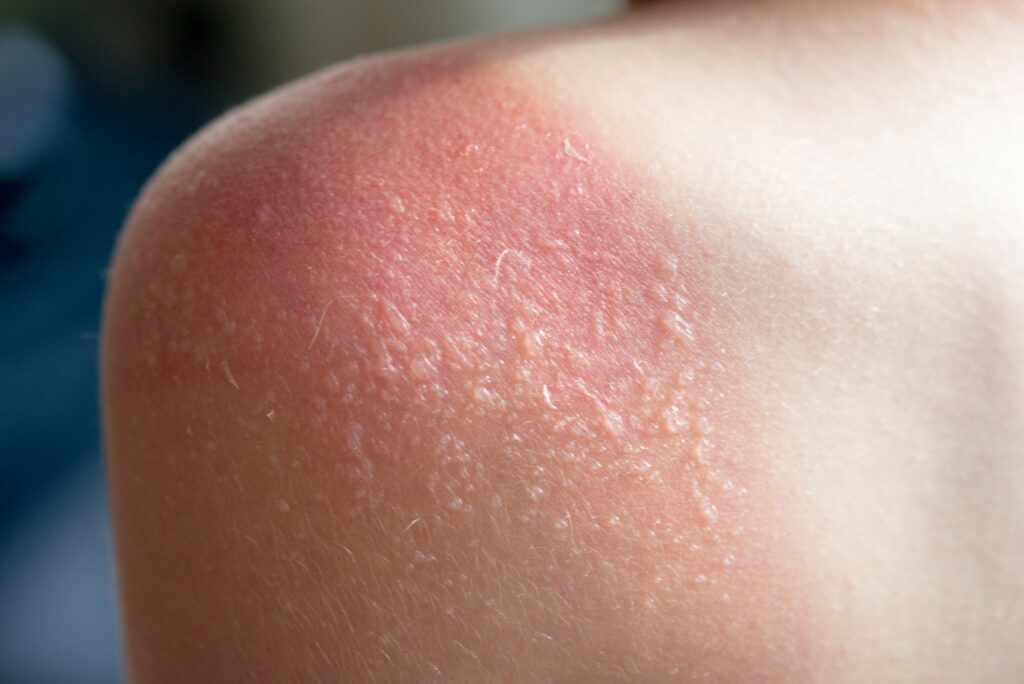Dermatologist Advice on Treating Sunburns This Summer

Summer is in full swing, and the hotter it gets, the more people head out to the waterside to get some relief. Unfortunately, sunburn is inevitable without consistent application of sunscreen, sun protective wear, and diligence to keep the skin safe. Pink cheeks, sore shoulders, and blistering can be uncomfortable, to say the least. Some people with severe sunburn experience heat stroke and dehydration, and the recovery can take days. Here, we get expert advice from a dermatologist on treating sunburns best this summer.
Sunburns: Not Just on The Surface
Sunburns cause damage to the skin, and not just on the surface. Many people dismiss mild sunburns but do not realize how severely and permanently the skin cells were damaged. Sunburns cause damage to the DNA! Experts in skin care will advise you to stay out of the sun and that preventive care is the best when dealing with the sun’s relentless UV waves. However, that advice is not terribly helpful if you already have sunburned skin. What you need is professional advice on how to treat it.
Treating Sunburn Discomfort
Treating a sunburn should start by taking some of the heat out of the affected area. Still, managing inflammation and discomfort is essential when dealing with a painful sunburn. A key is to take measures sooner rather than later. If you know you have a sunburn, treat it as soon as possible to get the best results.
Some ways to treat sunburns include taking anti-inflammatory medicine. Medications, such as aspirin, can be taken internally and should be done as soon as possible after the burn (Do not take any medication that you are allergic to or have unknown reactions to). In some severe cases, those suffering from sunburn should seek medical attention for stronger dose prescriptions of anti-inflammatory medications.
The most common way to treat sunburns is using topical creams and moisturizers. Cortisone creams can significantly relieve discomfort, but because it is medicated, they should be used according to the directions. If you have questions, it is best to contact your dermatologist and get some professional advice. Moisturizers and aloe gels are the most widely used topicals used on sunscreens. However, most aloe gels sold over the counter have alcohol in them. Applying these can be incredibly painful on a severe sunburn!
Taking a cool bath (if a shower is too painful) is an excellent first step. Follow the rinse-off with a fragrance-free moisturizer within minutes of gently toweling off the affected area. If using aloe gel, ensure it is 100% pure aloe to avoid potential allergic reactions and worsening skin conditions.
Use caution and call a professional skin care specialist or your doctor if you experience any adverse effects from at-home treatments!
Babying Sunburned Skin
Think about sunburned skin like a baby. It must be carefully treated and protected to be healthy. There is a significant risk when exposing sunburned skin to the sun again. Treating skin rough or removing peeling skin leaves a real possibility of uneven skin color when it is all said and done. Do not rub, peel, or expose sunburned skin to harsh products – it is necessary to take a break from regular skincare routines until the skin is healed. Whatever you do, avoid re-exposing the sunburned areas to the sun again. The damaged skin has no protection from the sun’s harmful rays until it is healed, which can take weeks! In not taking this precaution, results can be more damaging with longer-term effects.
Sunburn’s Relentless Long-Term Effects
Sunburns can discolor skin and increase the risk of getting skin cancer. Freckles may appear in previously sunburned areas. Even though some people think these sun-caused freckles are attractive, the more you get, the worse off your skin is. A licensed dermatologist must check freckles that are caused by sun exposure for skin cancer. If a blistering sunburn occurs before 18 years of age, the risk of skin cancer doubles! A professional skincare specialist does not judge. They want to help.
Unfortunately, the lack of concern most people have for their skin in the sun can have short term discomfort and long-term effects. Professional dermatologists have seen skin cancer in patients that may have avoided it if more preventative care had been taken initially. The best advice is to use zinc oxide sunscreens that are not expired – that’s right, sunscreen expires and is less effective. Some clothing may be worn but should have UV protection fabrics. Always, and this means ALWAYS, wear head protection when in the sun for an extended time. If you have questions or suffer from severe sunburn, try some at-home solutions to relieve the discomfort. If you still experience pain that is not improving after a few days, contact a medical professional.
Do what you can to help skin heal on the surface following a sunburn and protect your precious skin in the future!
